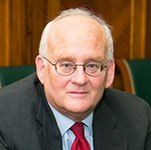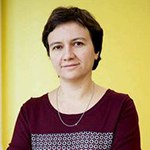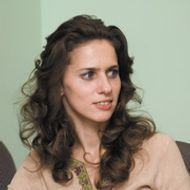Trends and Issues in Doctoral Education Worldwide: An International Research Inquiry
DESCRIPTION REGIONS & REPRESENTATIVES ASSISTANTS WORKSHOP
Trends and Issues in Doctoral Education Worldwide: An International Research Inquiry is a comparative research project by the Center for Institutional Studies at the National Research University-Higher School of Economics in Moscow, Russian Federation, and the Center for International Higher Education at Boston College, USA.
COORDINATING TEAM
EXPERTS
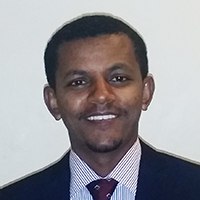
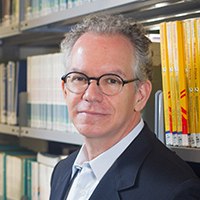
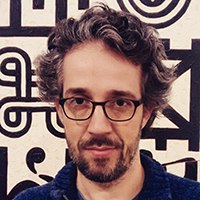
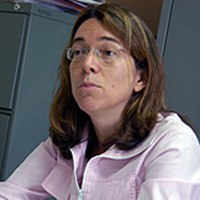
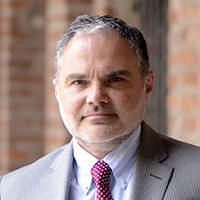
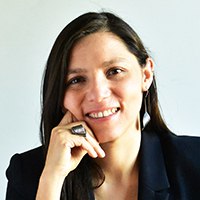
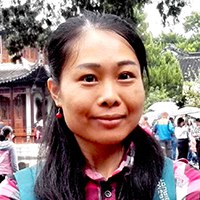
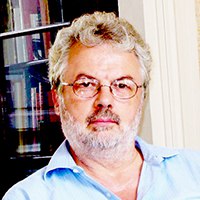
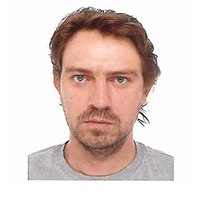
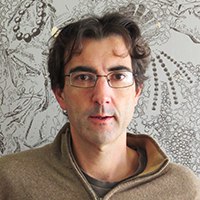
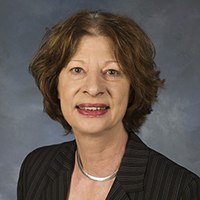
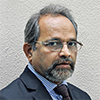
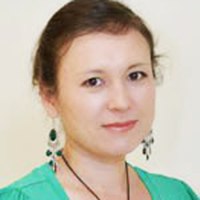
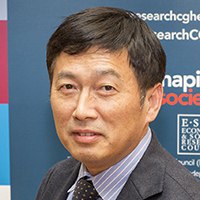
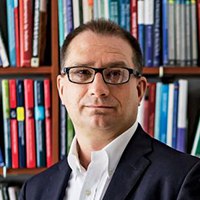
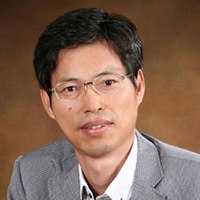
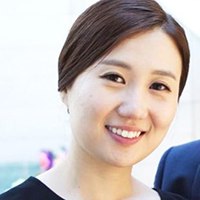
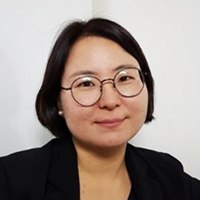
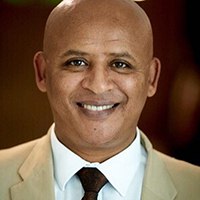
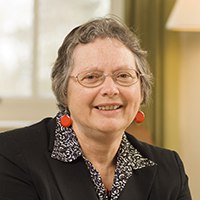
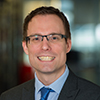
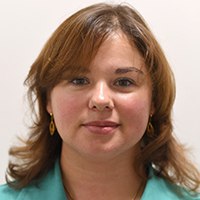

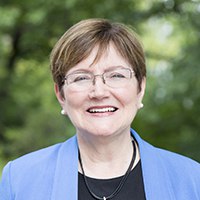

DESCRIPTION
Doctoral education trains and nurtures new scholars and thus is a key element for successful future of academia. The future of the contemporary university and of the increasingly important research enterprise worldwide depends on effective, imaginative, and relevant doctoral education. However, it faces challenges everywhere in the 21st century. In some countries, there is a dramatic underproduction of doctoral degree holders to supply rapidly growing postsecondary enrolments and meet the demands of the knowledge economy. In others, there is an oversupply of doctoral graduates where enrolments are flat and enrolments in some disciplines and specializations are not in balance with requirements of the economy or of academe. Questions about the appropriate organization and purpose of the doctorate are common as the nature and purpose of the doctorate are challenged by critics who argue that the nature of doctoral training requires major reforms to face the realities of the labor market and the dramatic changes in knowledge production and research worldwide. As universities have become globalized and borders between universities and non-university sector have become more fuzzy, many have argued that doctoral education needs to adjust to new realities. Despite these and other significant challenges, and despite the fact that there is great variety in doctoral education among countries and universities around the world, there has been relatively little fundamental change in doctoral education. While universities changed a lot during recent decades, doctoral education is probably the most rigid part of academe. And there has been little analysis of trends and directions around the world.
Doctoral education is criticized worldwide. Some claim that traditional models are no longer relevant for the 21st Century. Others point to long degree completion times, high levels of drop-outs, a lack of interdisciplinarity, and to poor quality of training and research under budget cuts.
There are debates concerning the two main directions in educational preparation—the European pattern of the “research doctorate” with little coursework and a high level of dependence on a single academic advisor or laboratory versus the North American pattern of significant coursework combined with a dissertation and a more collective advisement arrangement. At the same time, there has been scant discussion about how these models fit into the broader picture of organization of academic systems in general and academic labor market in particular and how rigid these systems may be in their adjustment to new demands and realities. In other words, which system is more effective, and which has better prospects to survive in the future?
At the moment, there are differences in length (although in general between 3 and 5 years), in position (as a student, as an employee), in funding (free, tuition based, with scholarships or loans, or with a salary), in teaching responsibilities, in supervision, in requirements, and in purpose and relevance. There are also differences in who awards degrees—the state or the universities themselves. There is discussion about the position of doctoral programs with the university: under the department or the faculty, in one or more graduate schools within or between universities and together with or without master programs? There is discussion about academic versus professional doctoral programs, as a large proportion of doctoral graduates do not enter academia but are not prepared for the rest of the labor market, while there is a demand for such graduates the universities currently do not supply for. And there are wide variations, by country, discipline, and individual universities in labor markets for young doctoral degree holders in academe as well as their career prospects in non-university sector. Few analysts think that the current state of doctoral education is satisfactory. Yet, traditional patterns of doctoral preparation have proved to be highly resilient and have in general produced well-prepared graduates.
Doctoral education may seem a small and limited topic—but it is of great importance for the future of universities, scientific research in all fields, for the knowledge economy, and for the scientific and academic workforce globally. While there are statistics concerning total numbers of postsecondary students worldwide, there seem to be no easily available numbers for doctoral students—although national figures are available for many countries. It is clear that the large majority of doctorates are produced in the major research producing countries in North America, Europe, and Japan—although countries such as China are rapidly expanding doctoral programs. It is clear that there are major variations between the production of doctorates and the needs, both in terms of specific disciplines and fields and in overall numbers, in many countries. Rapidly expanding postsecondary systems require larger numbers of doctoral degree holders than are being produced, while countries with stable enrolments are in some cases producing too many doctorates for the traditional academic labor market.
Our definition of doctoral education is fairly broad. We will consider the traditional academic doctorate—the PhD—as well as professional doctorates that have emerged in fields such as education, business management, and others.
This research project has a simple yet complex purpose—to understand the current realities worldwide in key countries and to examine current and proposed reforms in doctoral education. We will link broader societal and economic issues affecting doctoral education to the realities and thinking at the universities themselves. Government policy relating to doctoral education as well as pressures from the labor market, on and off campus will be considered.
ASSISTANTS
— Dara Melnyk
— Ayenachew Woldegiyorgis
— Victor Rudakov
— Ksenia Rozhkova
REGIONS AND REPRESENTATIVES
Africa
| Ayenachew Aseffa Woldegiyorgis is a research assistant and doctoral student of higher education at the Center for International Higher Education, Boston College. His research interest includes internationalization of higher education in developing countries, academic and research partnerships, quality assurance in higher education and the developmental role of higher education institutions. Having his BA degree in Business Management from Jimma University, in Ethiopia, Ayenachew also received MA in Public Administration from Addis Ababa University and MSc in Research and Innovation in Higher Education (from the Erasmus Mundus program of Danube University Krems, University of Tampere, Beijing Normal University and University of Applied Sciences Osnabrück). Before joining CIHE, he has worked as a consultant for the World Bank in Washington DC, and did internship at the Finnish Center for International Mobility, in Helsinki. Back in Ethiopia he held teaching positions at Unity University and Addis Ababa University and was a frequent commentator on issues of higher education on a national newspaper, The Reporter. |
Brazil
| Marcelo Knobel is president (since April 2017) of the University of Campinas (Unicamp) in Brazil, considered one of the best universities in Latin America. Previously, Knobel was Executive Director of the Brazilian National Nanotechnology Laboratory (LNNano) of the Brazilian Center for Research in Energy and Materials (CNPEM). Knobel coordinated the Creativity Development Center and was Executive Director of the Exploratory Science Museum – both at Unicamp. As Vice-President of Undergraduate Programs (2009-2013), he implemented the Interdisciplinary Higher Education Program (PROFIS), which combines social inclusion with general education, for which he received the Peter Muranyí Prize in Education (2013). His research interests are in nanomagnetism, the popularization of science and technology, and higher education. |
| Ana Maria F. Almeida is Associate Professor at the School of Education, University of Campinas, Sao Paulo, Brazil. Her research focuses on education and inequality. She is the author of As Escolas dos Dirigentes Paulistas, and co-editor of A Escolarização das Elites and Circulação Internacional e Formação Intelectual das Elites Brasileiras. Her publications have appeared in journals and books in Brazil, France, the UK, and the USA. She has been a visiting professor at the Ecole des Hautes Etudes en Sciences Sociales in Paris, at FLACSO in Buenos Aires, and a visiting scholar at the Stanford University Center for Latin American Studies. |
| Mauricio Ernica is Assistant Professor at the School of Education at the University of Campinas, São Paulo, Brazil. He obtained a bachelor's degree in Social Sciences from the University of São Paulo and a master's degree in Anthropology from the University of Campinas, São Paulo, before completing doctoral studies in Applied Linguistics and Language Studies at the Pontifical Catholic University of São Paulo and at the University of Geneva. While working in NGOs and after returning to academia, he has researched on education and inequalities. His work has been published in journals and books in Brazil, Switzerland and USA. |
Chile
| Andrés Bernasconi is an associate professor at the School of Education of the Pontificia Universidad Católica de Chile, and director of its Center of Advanced Studies on Educational Justice. Bernasconi has done research on Chilean and Latin American higher education, and has taught or carried out research or consulting work on higher education administration and policy in various countries in the Americas, Europe and Asia. He is currently interested in higher education law and regulation, university governance, and organizational change in institutions of higher education. He holds degrees from the Pontifical Catholic University of Chile, Harvard University and Boston University. |
| Ana Luisa Muñoz-Garcia is a Doctor in Educational Culture, Policy and Society from the State University of New York at Buffalo.She is an Assistant Professor in the Faculty of Education at the Pontifical Catholic University of Chile. Her focus has been educational research and construction of knowledge in academia within the framework of internationalization policies. Today, she is leading a project on research policies in higher education, and another about internationalization, knowledge and gender in academia. |
China
| Shuhua Chen is Assistant Professor at the Graduate School of Education, Shanghai Jiao Tong University, China. Her research interests include graduate students' learning experience and career preparation, doctoral examinations, researcher development and qualitative research. She is the Principal Investigator of multiple research projects about doctoral education in Mainland China, including one funded by China's Ministry of Education. Dr. Chen holds a Ph.D. in Educational Studies from McGill University, Canada, and was an active member on a research team investigating early career academics' (including doctoral students) experiences in Canada. |
France
| Julien Calmand is junior researcher in Cereq (French Centre for Research on Education, Training and Employment), PHD student in Iredu (Institute for Research in the Sociology and Economics of Education, University of Burgundy) He is specialist of Higher Education, with a special focus on transition from school to labor market. Main research areas: PhD labor market, vocationnalization of Higher Education and especially doctoral education. Selected recent publications: European Journal of Higher Education, International Journal of Manpower, Journal of International Mobility. |
| Thierry Chevaillier is Emeritus Professor of Economics of Education in the Institute for research in sociology and economics of education (IREDU) at the University of Burgundy (Dijon, France). His research focuses on funding, organization and evaluation of Higher Education institutions as well as on HE academic staff. He has published in several collective books on comparative higher education (Springer, Kluwer) and in the International Journal of Educational Research, Higher Education, European Journal of Education, Higher Education Quarterly, Higher Education Policy, Higher Education in Europe, Revue Internationale d’Education (Sèvres)… He is a member of CHER, the Consortium of Higher Education Researcher and RESUP, the French network of Higher Education researchers. |
| Jean-François Giret (PhD in Economics) is Director of IREDU (Institute for Research in the Sociology and Economics of Education, Universituy of Burgundy) and full professor in education. He is a specialist of higher education, with a special focus on competences developed and their valorisation on the labour market. Main research areas are transition from higher education to work, skill mismatch, PhD labour market. Selected recent publications: Gender and Education, Applied Economics, Applied Economics Letter, Europen Journal of Education, Journal Economics of Innovation and New Technology, Journal of Vocational Behavior, European journal of higher education. Web site: http://iredu.u-bourgogne.fr/ |
Germany
| Barbara M. Kehm studied German Literature, History and Philosophy. In 1990 she took up a position as post-doc researcher at the International Centre for Higher Education Research (INCHER) at Kassel University (Germany) where she specialised on research about higher education. After having worked as a senior researcher at the Institute for Higher Education Research of the University Halle-Wittenberg she returned to Kassel as a professor and then Director of INCHER (2003-2011). From 2013 – 2017 she was Professor of Strategic Leadership and Internationalisation in Higher Education at the University of Glasgow in Scotland (UK). She has published more than 30 books and well over 250 journal articles and book chapters on a range of topics, in particular on internationalisation, higher education governance, professionalization and doctoral education. She was Secretary General of CHER and EAIR and is currently a member of the Board of Governors of two German universities. |
Japan
| Futao Huang is professor at the Research Institute for Higher Education, Hiroshima University, Japan. He earned his BA, MA and PhD in Chinese universities. Before he came to Japan in 1999, he had taught in several Chinese universities. Currently he is supervising several doctoral students in the filed of higher education based in Hiroshima University. His major research fields include university curricular development, internationalization of higher education, academic profession, and higher education in East Asia. Since the late 1990s, he has published widely in Chinese, English and Japanese in many domestic and international peer-reviewed journals, including Higher Education, Studies in Higher Education, Higher Education Policy, Higher Education Policy and Management, Journal of Studies in International Education and so on. In 2014, he co-edited The Internationalization of the Academy: Changes, Realities and Prospects which was published in Springer. Furthermore, he is member of Editorial Advisory Board of A Journal of Studies in International Education, Higher Education, Policy Reviews in Higher Education and Cogent Education. |
India
| N.V. Varghese is currently Vice Chancellor of the National University of Educational Plannning and Administration and the Director of the Centre for Policy Research in Higher Education (CPRHE), New Delhi. He holds a doctoral degree in Economics with specialization in educational planning. He was Head of Governance and Management in Education at the International Institute for Educational Planning (IIEP/UNESCO), Paris till October 2013 and Head of its Training and Education Programmes from 2001 to 2006. He was responsible for designing and introducing the IIEP Master’s programme in educational planning and management. In the 1990s he was a Professor and Head of the Educational Planning Unit at NIEPA, New Delhi. He has been closely associated with educational planning at the federal and decentralised levels and with the design and development of externally funded education projects in India. While in NIEPA, he was responsible for managing an Asian regional network – the Asian Network of Training and Research Institutions in Educational Planning (ANTRIEP) and was editor of its Newsletter. While in IIEP, he was the Secretary General and responsible for the Secretariat of the International Working Group on Education (IWGE) which is a network of funding agencies in education. He has directed several research projects; published around 25 books and research reports, and more than 180 research papers and articles in areas related to educational planning, financing and higher education. |
Kazakhstan
| Aliya Kuzhabekova is an Associate Professor at the Nazarbayev University Graduate School of Education, Kazakhstan. Aliya holds a Ph.D. in Higher Education Policy from the University of Minnesota. Prior to her current appointment Aliya worked as a Postdoctoral Fellow at the Center for Science, Technology and Public Policy at the University of Minnesota, where she conducted research on governance of emerging technologies. Aliya’s research interests are in international and comparative higher education. Her current work focuses on the analysis of the experiences of international and local faculty in Kazakhstan, as well as on the barriers and factors contributing to university research capacity building in transitional economies. An important part of her work focuses on the experiences of females in higher education, including females in leadership positions, and females in STEM. |
Korea
| Jung Cheol Shin is professor at Seoul National University. He served for the Korea Ministry of Education about 20 years. His research interests are higher education policy, knowledge and social development, and academic profession. His recent book publications include University Rankings (2011), Institutionalization of World-Class University (2012), Teaching and Research in Contemporary Higher education (2013), The Future of the Post-Massified University at the Crossroads (2013), The Dynamics of Higher Education Development in East Asia (2013), and Mass Higher Education Development in East Asia (2015). His upcoming books are Higher Education Governance in East Asia: Transformation under Neoliberalism (2018 forthcoming) and Doctoral Training for Knowledge Society across Countries: Global Convergence or Divergence? (2018 forthcoming). |
| Seung Jung Kim is a research fellow of Center for Higher Education and Knowledge Studies (CHEKS) and Education Research Institute at Seoul National University. She received Ph.D. in higher education administration and policy studies from Seoul National University. Her doctoral dissertation focused on doctoral students’ competency and academic socialization. She has published about 10 articles on doctoral education and education policy issues in academic journals. |
| Heejin Lim earned her doctoral degree at Seoul National University and is also a research member at Center for Higher Education and Knowledge Studies (CHEKS). Her research interest areas are doctoral education, specifically on doctoral students’ research and socialization experience. Her PhD thesis focuses on STEM doctoral students’ research stress and coping strategies in relation to government funding mechanism. She has published seven articles on doctoral education and higher education studies in internationals including Studies in Higher Education, Scientometrics or Korean journals on the topics related to graduate education. |
Poland
| Marek Kwiek is UNESCO Chair in Institutional Research and Higher Education Policy, a director of the Center for Public Policy Studies, University of Poznan, Poland. An international higher-education policy expert to the European Commission, OECD, World Bank, UNESCO, OSCE, Council of Europe, and USAID. His research interests include university governance, academic entrepreneurialism, and the academic profession. He publishes mostly internationally (Science and Public Policy, Higher Education, Studies in Higher Education, Comparative Education Review, Journal of Studies in International Education etc.). A Fulbright New Century Scholar 2007-2008. An editorial board member of Higher Education Quarterly, European Educational Research Journal, British Educational Research Journal and European Journal of Higher Education. |
Russia
| Elena Kobzar – Director for Graduate Studies at the National Research University – Higher School of Economics in Moscow, Russia. She holds a PhD in economics from Moscow State University. Her areas of expertise are focused on doctoral education management, higher education policy, doctoral education systems and institutions. As an consultant she is working with Ministry of Education and Science of the Russian Federation on strategies for improving doctoral education. She was involved in a consultancy projects, dealing with issues of reform and restructuring doctoral education, emerging forms of governance in doctoral education. Sergey Roshchin is vice-rector of the National Research University – Higher School of Economics in Moscow, Russia, an associate professor in the Economics Department and a Head of Laboratory for Labor Market Studies at HSE. His major research interests focus on following topics: human capital and demographic processes, interaction between labor and education markets, labor market demand for skills. He is also an expert of Ministry of Education and Science of the Russian Federation on a wide range of issues related to the development of higher education in Russia. |
South Africa
| Damtew Teferra is professor of higher education at the University of KwaZulu-Natal, South Africa, and founding director of the International Network for Higher Education in Africa, closely associated with the Center for International Higher Education, Boston College. He is founding editor-in-chief of the International Journal of African Higher Education. Teferra steers the Higher Education Cluster of the Africa Union’s Continental Education Strategy for Africa. His most recent edited book is Flagship Universities in Africa (Palgrave Macmillan, 2017). |
UAE
| Tatiana Karabchuk, PhD, is an assistant professor of Sociology, CHSS, UAE University and coordinator of Social Research Unit (UAEU), as well as vice-director for Eurasian Monitor. Actively participated in more than 22 research projects, successfully completed more than 10 research grants and authored more than 20 articles in peer-reviewed journals. The research interests are youth, students’ engagement, research obstacles in education, subjective well-being, job stability and fertility, labour migration, cross-country comparative sociology, economic sociology and labour market studies. Recent publications were done on family values, youth values and attitudes, job instability, pension mobility, fertility, gender equality values, and subjective well-being. Previously Tatiana worked as Deputy Director of Laboratory for Comparative Social Research at National Research University Higher School of Economics. Tatiana was a visiting researcher at Population Centre of the University of North Carolina (Chapel Hill, USA), IOS Regensburg (Germany), GESIS EUROLAB (Germany), Hitotsubashi University (Japan). |
UK
| Rosemary Deem is currently Vice Principal (Teaching Innovation; Equality and Diversity), Dean of the Doctoral School and Professor of Higher Education Management at Royal Holloway, University of London, UK. An Academician of the UK Academy of Social Sciences, Rosemary is a sociologist who has also worked at Loughborough, York, the Open and Lancaster Universities and the former North Staffordshire Polytechnic in the UK. She was a UK Education Research Assessment Exercise sub-panellist in 1996, 2001 and 2008, has twice chaired the British Sociological Association, directed the UK Education Subject Centre ESCAlate from 2001-2004 and was Vice-Chair of the Society for Research into Higher Education from 2007- 2009. Since 2013 she has been co-editor of the international journal Higher Education (Springer). In 2013 she was appointed OBE for services to higher education and social sciences in the Queen’s Birthday Honours List. In July 2015 she became the first woman to chair the UK Council for Graduate Education. |
| Shane Dowle is a postgraduate research student at Royal Holloway, University of London, UK. His research explores what helps or hinders timely submission of PhD theses. His interest in this topic stems from my professional experience working as a manager of a Doctoral College. Through his profession, he have witnessed how universities across the world are under increasing pressure to ensure that PhD students submit their theses within a pre-determined timeframe. This pressure emanates from numerous and varied government policies that encourage universities to improve the proportion of students submitting within a ‘reasonable’ timescale. In the United Kingdom, for example, funders set targets for institutions which, if not achieved, lead to institutions being cut off from accessing further financial investment in doctorates (Wright and Cochrane 2000). Similarly, in Spain and the United States, there is concern about the very low proportions of students completing a doctorate after registration (Castello et al. 2017). Whereas these policies have drawn attention to the issue of low completion rates and lengthy times to degree, they do not offer universities any guidance on what approaches can be taken to support PhD students to timely and successful submission of their theses. This leaves us with the question: what helps PhD students to submit their theses in a timely fashion and with a successful outcome at the viva voce examination? His research project explores this question by investigating the influences of the intellectual and affective attributes of PhD students; the size and scope of the project; the impact of different supervisory approaches; the role of local and institutional research cultures; and the policy context. |
USA
| Ann E. Austin is Professor of Higher, Adult, and Lifelong Education at Michigan State University, where she also serves as Associate Dean for Research in the College of Education. Her research concerns academic work and professional development, doctoral education, teaching and learning in higher education, and organizational change. She was a U.S. Fulbright Fellow in South Africa (1998), served as President of the Association for the Study of Higher Education (2001-20020), and worked as a Program Officer at the U.S. National Science Foundation (while on leave from her university). She has been involved in research and consulting in more than one dozen countries. |
| Emily R. Miller is Associate Vice President for Policy of the Association of American Universities where she has primary responsibilities for collaborating with member campuses on institutional policy efforts related to undergraduate and graduate education. She directs the AAU Undergraduate STEM Education Initiative, the PhD education initiative, and other grant-funded projects. She also staffs AAU’s STEM Network and Association of Graduate Schools constituent groups and serves as liaison to the AAU Arts & Science Deans group. Previously, Emily was a research and curriculum specialist for the Association for Community College Trustees, an assistant director of career services at Tufts University, worked in alumni relations at Harvard Business School, and collaborated with the Association of Governing Boards. Emily has published on the topics of post-secondary institutional leadership, specifically as it relates to governance and administration; organizational change in universities and colleges; and higher education policy. She is also a professional lecturer of higher education at The George Washington University. Emily earned her PhD in Higher, Adult, and Lifelong Education from Michigan State University; MA in Education Policy and Management from Harvard Graduate School of Education; and BA in Political Science from Gettysburg College. |
Observing Changes in Doctoral Education
| Maresi Nerad, founding director of the Center for Innovation and Research in Graduate Education (CIRGE) and Professor Emeritus for Higher Education, at the University of Washington, Seattle, USA. A native of Germany, Dr. Nerad received her doctorate from the University of California, Berkeley; directed research on doctoral education at the Graduate Division of Berkeley, as Dean in Residence at the Council of Graduate Schools, D.C., and as Associate Dean of the UW central Graduate School; published, Towards a Global PhD? |
Have you spotted a typo?
Highlight it, click Ctrl+Enter and send us a message. Thank you for your help!
To be used only for spelling or punctuation mistakes.
